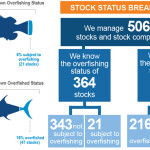An 804-megawatt plan by Mayflower Wind won the second Massachusetts state bid for offshore wind energy, as developers forge ahead despite a federal study of how the burgeoning new U.S. market may affect the commercial fishing industry and other maritime interests.
Mayflower Wind, a 50/50 joint venture between Shell New Energies US LLC and EDPR Offshore North America LLC, beat out Vineyard Wind and Bay State Wind, which hold adjoining federal leases the companies obtained south of Martha’s Vineyard, in the competition for the state power bid. Mayflower says it will deliver long-term power below the state’s original price cap of USD 84.23 (EUR 76.1) per megawatt-hour, and more than 10,000 jobs in state over the life of the project.
It’s the latest sign that wind developers remain bullish on the Northeast U.S. energy market – despite a second review of wind plans by the federal Bureau of Offshore Energy Management.
The Department of Interior through BOEM had aggressively offered offshore wind leases during the tenure of former Interior Secretary Ryan Zinke. But BOEM began taking a second look at cumulative impacts of the future East Coast wind industry, after NOAA Fisheries officials refused to sign off on an environmental impact statement for Vineyard Wind, saying more study is needed.
If they can get approval, Mayflower officials said they expect a start-up date in 2025. The company says it is proposing a similar pricing plan to Connecticut for its offshore wind energy procurement.
“Mayflower Wind is proud to have been selected to provide low cost renewable energy to Massachusetts,” company president John Hartnett said in announcing the agreement. “Development of the Mayflower Wind project will contribute to the building of an offshore supply chain on the South Coast and across the Commonwealth, helping to launch a new clean, safe and innovative sector of our economy.”
Massachusetts state and local political leaders are banking heavily on that economic development to revitalize old industrial waterfronts like New Bedford; already a competition is arising with Rhode Island, where the Quonset Point industrial park served as construction base for the first U.S. commercial wind project at Block Island.
The Massachusetts Maritime Academy this month announced it is starting the nation’s first basic training program for offshore wind energy workers, a basic week-long course with training modules based on Global Wind Organization standards.
The second Massachusetts power bid “is evidence that the U.S. offshore wind industry is becoming a mainstream clean energy source for U.S. coastal states, and the opportunity for the U.S.-based supply chain is only going to grow,” said Liz Burdock, president and CEO of the industry group Business Network for Offshore Wind.
“Major oil and gas companies and utilities understand the future of electricity generation along the U.S. Coast is offshore wind. The selection of Mayflower Wind, a joint project between oil and gas giant Shell New Energies and the Portuguese utility EDP Renewables, truly demonstrates the rush to fuel supply diversification. This team will bring regulatory expertise and utilize a supply chain that will expand across America,” added Burdock.
Photo courtesy of Mayflower Wind







